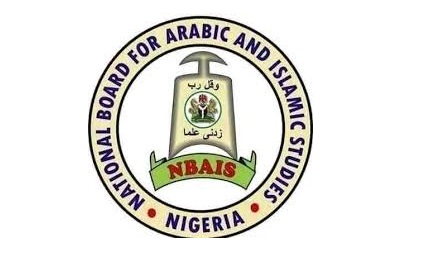The Registrar, National Board for Arabic and Islamic Studies (NBAIS), Prof. Muhammad Shafiu Abdullahi, has said that the board is planning to digitize its operations and to increase the number of schools attending their examinations across the country.
Abdullahi said this yesterday in Abuja during a two-day workshop on ‘Corporate Communication and Strategic Information Management’ for NBAIS officers in collaboration with Clanfield Communications Limited.
- Board seeks compulsory religious learning in all schools
- Islamic studies board releases 2020 examination result of 39,614 candidates
“We have not less than 1,600 schools across the country sitting for our examinations and same time we achieved to convince the government to give us recognition, approval to operate nationally,” he said.
He said that the board had many plans to expand the activities its activities nationwide.
He also said that since the current board was new, it was important to get them and all the staff, to be abreast of the latest trend in ICT and technology to achieve the mandate of the board.
He said, “We have workers on ICT, most of them are new, you know, the board started new recently. So, we need to educate our people on that area, that is why we planned the workshop and we will soon have similar workshop.”
On the board’s achievements, Abdullahi said, “We have a unique and national curriculum for Arabic and Islamic schools. “Secondly, we are able to mobilize even government to establish such institutions.”
Also speaking, Dr. Mainasara Kogo Umar, who spoke on civil service, said the ultimate objective was to improve on service delivery.
“Nigeria now more than any other time before needs development as far a service delivery is concern especially coming out from COVID-19 pandemic which affected and retarded the tempo of development in government generally.
“So, it is time now when we should apply technological innovation in order to merely bridge the gap we have gotten as a result of COVID-19 influx.
“The whole world is moving towards e-governance, the whole world is moving towards application of modern technology to overcome one problem or the other in order to add value to governance,” Umar said.
He said that as far as governance was concern, section 14 of the Nigerian Constitution is all about service to the people.
He said, “We should not consider Nigeria as an island, in other words we should look at it as global best practices which is going all over the world by using the applications in government activities.”
On his part, the Managing Partner, Clanfield Communication Limited, Iheoma Shedrach, said that the importance of information management to the modern world is such that it is also important to the NBAIS board in the discharge of their responsibilities and achieving their mandates.
Also, a communication expert, Mr. Chuks Onuoha, who spoke on ‘Modern Information Management Techniques, Information Management in Digital Age, social media -Their Pros and Cons, Information Integration and Internet of a Thing’, said that the internet of things (IoT) allows organizations to replace their manual asset tracking systems with automated sensors.
“Leveraging the IoT data integration platform helps to standardize how data is identified, analyzed, represented, and integrated structured and unstructured data.
“The positive impact of the IoT on citizens, businesses and governments include: helping governments reduce healthcare costs, improving quality of life, reducing carbon footprints,
increasing access to education in remote under-served communities, improving transportation safety,” Onuoha said.

 Join Daily Trust WhatsApp Community For Quick Access To News and Happenings Around You.
Join Daily Trust WhatsApp Community For Quick Access To News and Happenings Around You.


